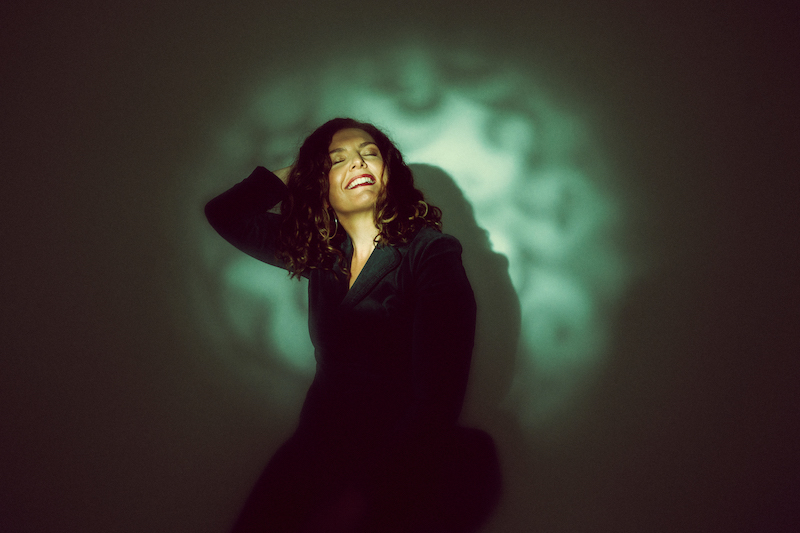Accessibility in Music: Important Lessons for the Australian Industry

Eliza Hull used to hide her disability from record labels, from industry professionals and even from fans. Now, she’s committed to changing the industry from within, putting accessibility in music in the spotlight. Here, she shares what the Australian industry could learn from the UK, and how she’s going to help make it happen.
Ever since I could remember, I have been singing. When I was a child, I also started falling over at
school and was later diagnosed with Charcot Marie Tooth.
It affects the way I walk; I fall over regularly and have low muscle tone and sensation. At age
17, I moved to Melbourne and started a rock band; we played constantly at venues like The
Evelyn and The Espy, and after lots of touring I went solo and developed myself as a songwriter.
Throughout my career, up until recently, I hid my disability. Whenever I could, I’d get people to pull
the curtain so the audience couldn’t see my band mates lift me up onto the stage. If I ever met a
prospective label or management, I would make sure I was seated so they didn’t see the way I
walked.
I remember working with a producer and him telling me I should hide my disability because nobody
would want to listen to me if they knew I was disabled. This ableism, and the many barriers I faced in the music industry, continued to make me feel I should conceal my disability.
Often opportunities in the music industry are hard to come by, so I didn’t want to add a layer of complexity to reduce my chances of making a career out of my passion.
Recently, I have begun to speak about disability and accessibility in the music industry. I have
worked with radio, organisations, and events like the ARIAs to amplify disabled artists, and educate
the industry so that future emerging disabled artists feel included and invited.
During one of the many COVID lockdowns, I had an idea to bring disabled musicians together from
across the world; I researched other disabled artists and discovered Ruth Lyon from the UK. I ended
up selecting a handful of artists and together we streamed out to the world through Isolaid, which
attracted over 50,000 streams. We shared our music and spoke about the barriers that we faced in the industry as disabled musicians.
Last year, Ruth and I met in person; we spoke on the first panel about disability accessibility at SXSW festival and performed at the first disability-specific showcase. Right now, I am currently in the UK performing alongside Ruth at The Great Escape Festival and touring across the country.
What I’ve noticed since being here is the dedication to change. Every venue we have been in has
asked what our accessibility requirements are; the stages have been more accessible, and even the
backstage area has been easy for us to navigate by a lift, or ground floor level.
There have been some exceptions to this, as a lot of the venues in the UK are heritage listed and/or old, which means accessibility is not possible. Though at each venue the promoters and venue owners have been passionate about including disabled musicians within their venues.
One venue in a small regional area of Rossendale was excited to show us around. Their backstage was accessible by a lift and the stage was on the ground floor, with state-of-the-art lighting and sound. I’ve also noticed how committed radio is in including disabled artists, including BBC introducing and other BBC networks. The Great Escape Festival is also beginning to make change, with wheelchair flooring over the pebbled rocks for easy access, and more representation.
Language is different here too. I haven’t once heard the term ‘person with disability’; instead it’s
been identity-first language so ‘disabled person’, which shows a push towards putting identity at the
front and seeing it as something intrinsic to the person – something to be proud of.
Whilst I have seen a huge amount of evolution here in the UK, there is still so much work that needs
to be done. I spent time with the organisation Attitude is Everything, which works with venues to
assist them in being accessible for disabled artists and audiences.
The organisation said that statistically, over two-thirds of disabled musicians surveyed said they still hid their disability for fear of damaging their careers, and had to compromise their health to perform live.
Ultimately, I see a connection with this statistic in Australia, and know that we still have a long way
to go.
In both countries I am absolutely seeing a shift; bit by bit disabled musicians are being amplified, and accessibility is being thought about. When new venues are being built, access is often
at the forefront of people’s minds, which is smart because 20% of the Australian population have a disability, and we are twice as likely to make art which includes music.
I am looking forward to coming home and sharing what I have learnt about access riders and accessibility charters with organisations and venues. It will be exciting to see how we can begin to make changes within venues so that disabled musicians see the music industry as an inviting one.
Eliza Hull’s single “Running Underwater” is out now. She’s currently touring the UK, and has Australian dates locked in for August and September.






























